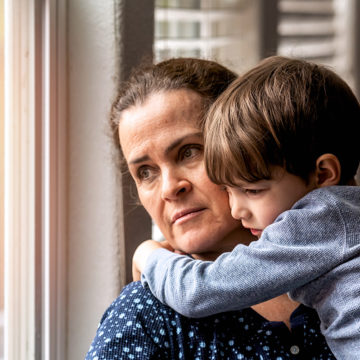There is no one single cause of homelessness. It’s easy to point to some leading reasons: lack of affordable housing, poverty, substance abuse, mental health issues, and domestic violence. Yet even those risk factors don’t give a full picture to how an individual or a family ends up homeless.
There are thousands of people in Wake County who are one paycheck, one illness, or one job loss away from being situationally homeless. While each situation is different, there are a couple of common underlying causes: Adverse Childhood Experiences (ACEs) and reading proficiency.
ACEs are serious childhood traumas that result in toxic stress that harms a child’s brain development and affects overall physical, mental, and emotional health. The stress can prevent a child from learning, building healthy, trusting relationships, and can result in long-term health problems like high blood pressure.
Adverse Childhood Experiences include:
Many of the individuals experiencing homelessness, including those who come to Raleigh Rescue Mission, have been subjected to more than five ACEs or traumas as adults.
There is conclusive evidence that reading proficiency is a direct predictor of future success. Children who are strong readers by fourth grade are more likely to graduate from high school and pursue college or vocational training.
Reading proficiency also helps students to not lose interest in school, as low literacy can affect morale and self-confidence in the classroom.
Adults who don’t graduate from high school are more likely to be arrested or incarcerated, as well as more likely to struggle financially and face poverty and chronic stress. All of these situations increase the likelihood of homelessness.
Raleigh Rescue Mission’s New Life Plan is carefully designed to address the underlying causes of homelessness, including ACEs and reading proficiency. Our strategy is to break that cycle for the families by creating a path for them to rebuild their lives.
The six-phase program uses assessments, counseling, tutoring, behavioral therapy, and vocational training for the client to process and overcome the negative behaviors or circumstances that led them to our door. That way, they can build resilience and truly move forward.
In our children’s program, we put a strong emphasis on getting each student to read at grade level or fourth grade level if they are older. After-school tutoring and homework assistance is key in their success. We also support adults whose reading proficiency is at a lower level.
New Life Plan clients have a chance to make changes in their lives and find hope through Jesus Christ. Our ultimate goal is for them to know their sacred value and find purpose through serving Him.
